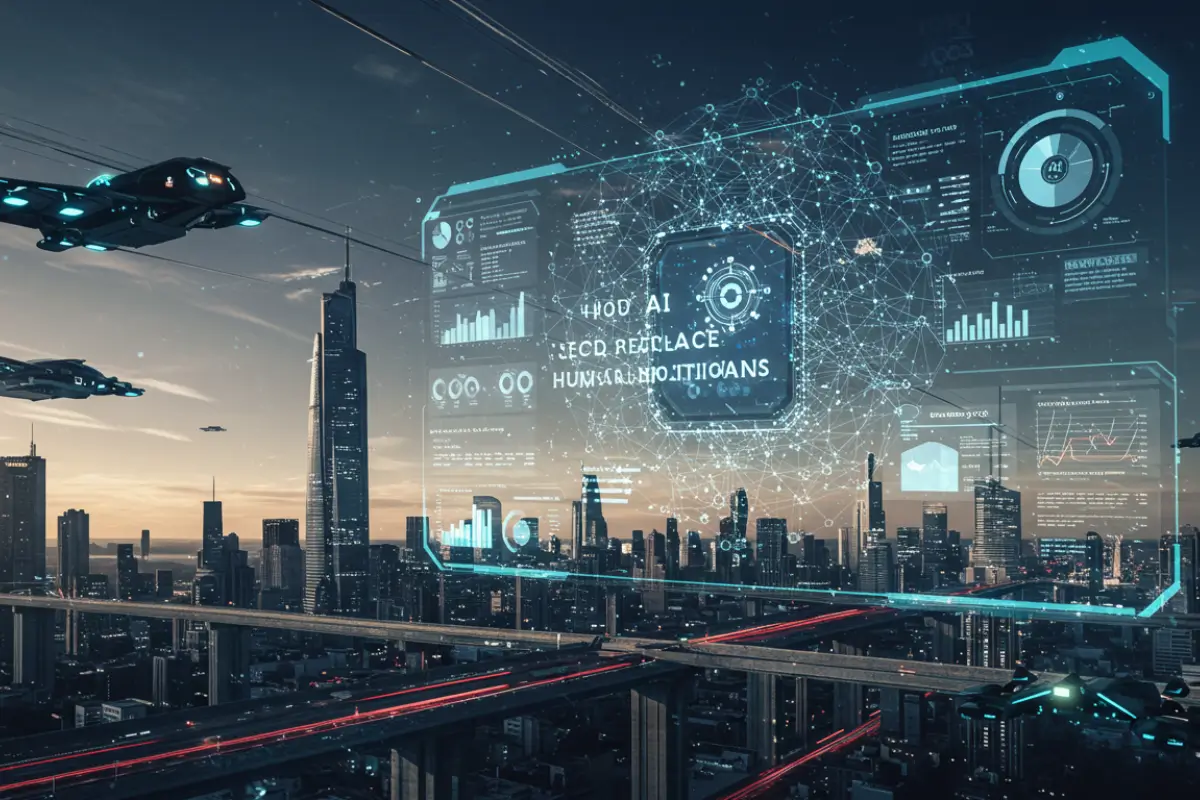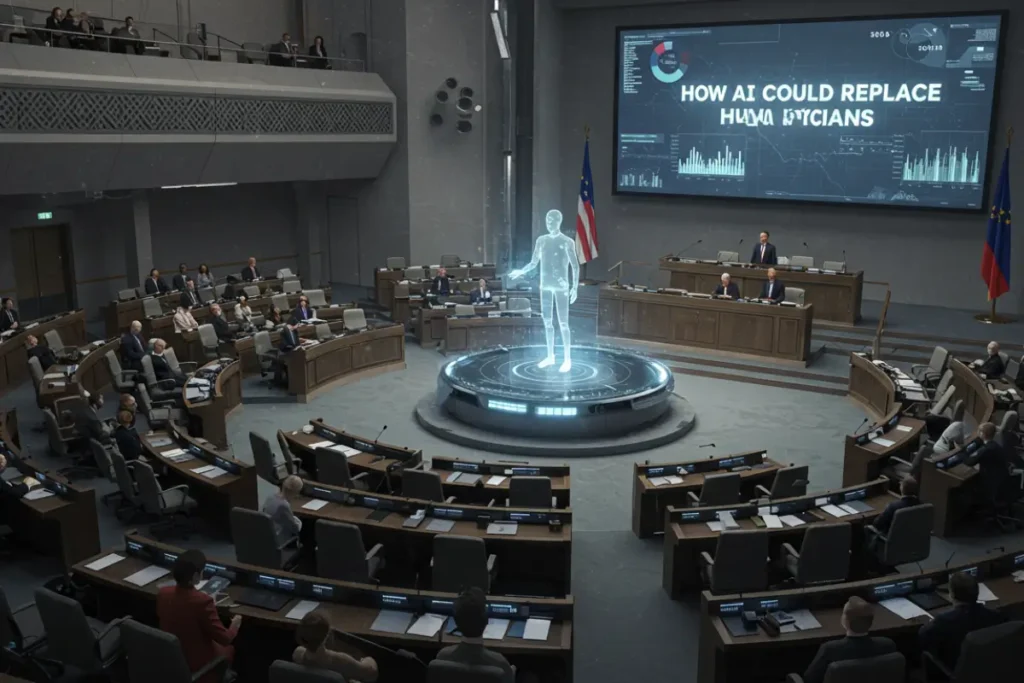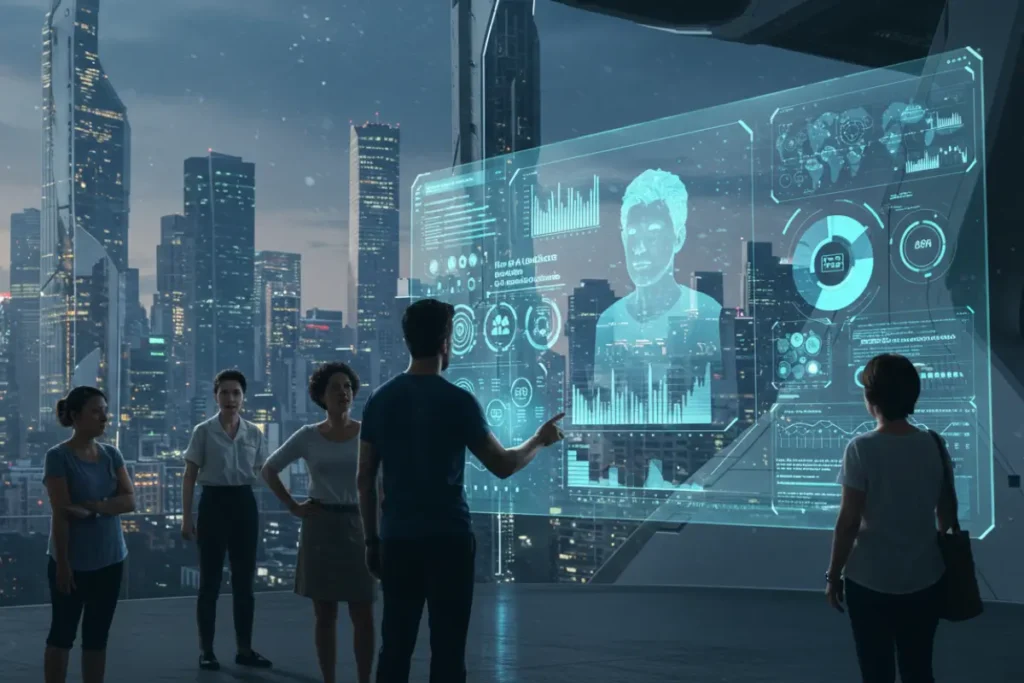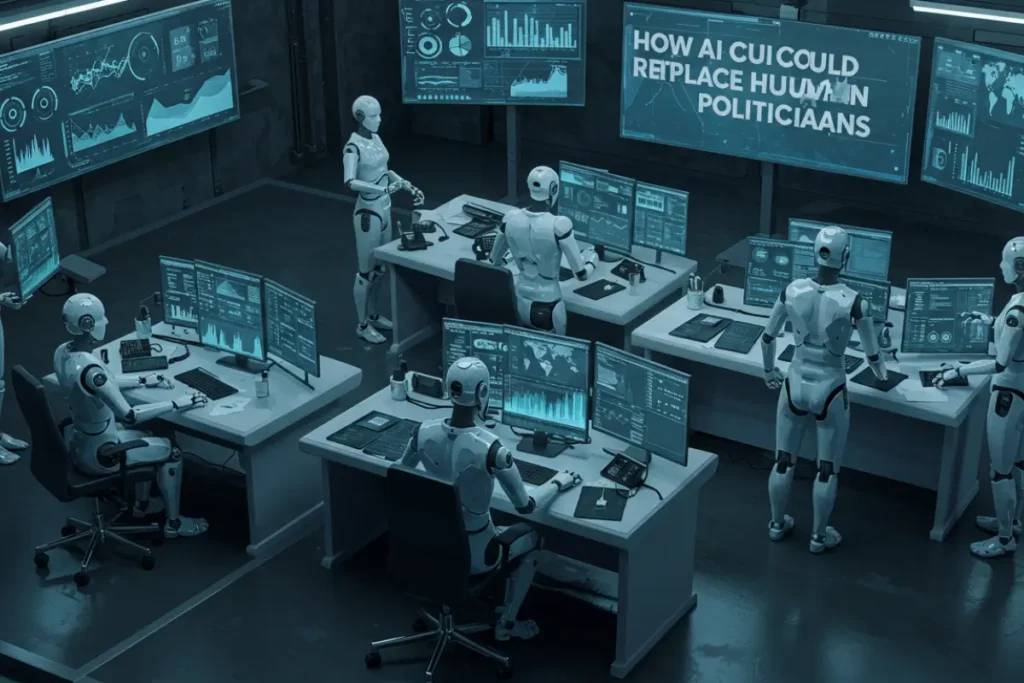How AI Could Replace Human Politicians
- May 30, 2025
- 0
Artificial Intelligence (AI) is revolutionizing every aspect of our lives, from how we work to how we socialize. But have you ever wondered what would happen if AI
Artificial Intelligence (AI) is revolutionizing every aspect of our lives, from how we work to how we socialize. But have you ever wondered what would happen if AI

Artificial Intelligence (AI) is revolutionizing every aspect of our lives, from how we work to how we socialize. But have you ever wondered what would happen if AI replaced human politicians?
It sounds like a futuristic fantasy, but the possibility is becoming more real with each passing day.
In this article, we’ll explore this idea from every angle, covering its potential benefits, challenges, ethical concerns, and how it might shape the future of governance.
So, grab a cup of coffee, sit comfortably, and let’s dive deep into this fascinating topic! ☕
Space for image: (Insert image of humanoid AI debating in a parliament setting here)

One of the most significant advantages of AI in politics is the elimination of human biases and the potential for corruption. AI systems operate based on algorithms, data, and logic rather than personal interests or emotions.
This means decisions could be made purely for the greater good, rather than influenced by political donors or personal gain.
Additionally, with AI handling political decisions, there could be:
For instance, countries battling corruption could see massive improvements by integrating AI into their governance structures. According to Transparency International, many governments suffer from high levels of corruption, which AI could potentially mitigate.
AI systems can process vast amounts of data in seconds, making them ideal for managing complex government tasks. Unlike human politicians, who require time for debates, consultations, and lengthy legislative processes, AI could streamline governance significantly.
Imagine governments being able to:
This efficiency could create a more agile and responsive government structure, capable of adapting to the fast-paced nature of modern society.
According to a report from MIT Technology Review, AI’s ability to enhance decision-making in governance is already being explored in smart cities around the world.
Another compelling benefit of AI politicians is their ability to create data-driven policies. Instead of relying on ideologies or political platforms, AI could analyze objective data to determine what policies would most benefit society.
For example:
By focusing on measurable outcomes, AI could help shape a more equitable and efficient society.
If you want to read more about how AI impacts different sectors, check out this article on AI in the workplace on our blog! 😊

While AI excels in data analysis and logical reasoning, it lacks emotional intelligence, empathy, and moral judgment—qualities essential in governance.
Human politicians make decisions not just based on facts but also considering cultural values, ethics, and compassion.
Without these qualities, AI may:
Thus, the risk of dehumanized governance is significant. According to the World Economic Forum, integrating AI in politics must balance efficiency with ethical considerations to ensure humane governance.
AI systems are susceptible to hacking, manipulation, and algorithmic bias. If not properly secured, these systems could be exploited by malicious actors, leading to catastrophic consequences for national and global governance.
Consider these scenarios:
This makes cybersecurity a critical concern in AI governance. According to CSIS, AI systems in government must be fortified against such risks to protect democratic institutions.
One of the cornerstones of modern democracies is the idea of elected representatives who act on behalf of the people.
Replacing human politicians with AI could undermine this principle, leading to a disconnect between the government and the governed.
Key concerns include:
For AI governance to succeed, mechanisms must be in place to ensure public participation and oversight. Otherwise, the shift could represent not progress but a democratic regression.

Rather than fully replacing human politicians, a more feasible approach could be a hybrid governance model where AI assists human leaders in decision-making.
This model could:
By complementing human judgment with AI’s computational power, we could harness the best of both worlds. Similar approaches are already being tested in some smart cities, according to a study by Brookings Institution.
As AI’s role in politics expands, it is essential to establish robust ethical frameworks to guide its deployment.
These frameworks should address:
Global organizations like the UNESCO are working on such ethical guidelines to ensure that AI is used responsibly and for the benefit of humanity.
For AI-driven governance to be successful, it is crucial to educate the public about AI’s capabilities and limitations.
Efforts should focus on:
By fostering a well-informed public, we can create a society that actively shapes AI governance, rather than passively accepting it.
If you’re curious about how AI is reshaping human consciousness, read our detailed analysis on AI and the evolution of human consciousness! 🧠
If you liked this article, don’t forget to share it with your friends and leave a comment below! Your opinion matters and helps us improve. 💬 Also, check out more engaging articles on our blog at Futuristic Intellect. For more tech news, visit our partner site Keyboards Technology. 🖥️
Stay curious and keep exploring the future of technology! 🚀